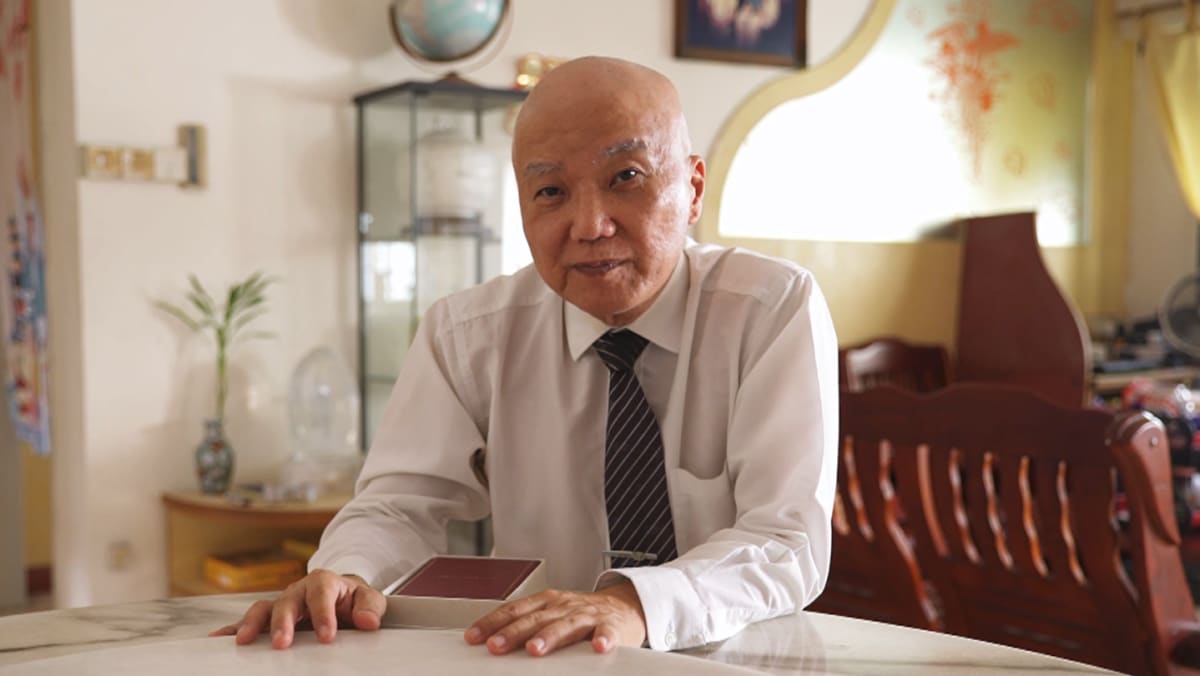My parents’ laughter rang out as I returned home from work one recent evening. I found them lounging on the sofa delighted by a Korean actor’s antics in their latest favourite television show.
Married for 25 years, this has become their nightly ritual. This heartwarming level of comfort with each other was achieved after years of ironing out differences that sometimes exploded into arguments.
When I was younger, they disagreed on parenting issues. My mother often had to work overtime in the office, which irritated my father who had to step up to take care of my sister and me. He reprimanded her: “You are not fit to be a mother.”
My mother was so upset that she still remembers that comment to this day. In the end, she compromised by taking her laptop home to work in the evenings. Other conflicts arose but they sorted them out eventually.
I admire their efforts at reconciliation, for I have given up on my relationships at the first major disagreement.
Speaking to other couples and therapists made me realise that marriage requires hard work beyond the fluttering “butterflies” of early romance. Learning how to navigate arguments is key to sustaining a long-term connection.
RUB UP THE WRONG WAY
Relationship experts said that married couples’ arguments tend to revolve around certain topics: Dealing with in-laws, finances, lifestyle differences, diverging career goals and parenting.
Couples who are dating have no responsibilities. But psychotherapist Carol Goh from Emotional Wellness Counselling Singapore said that the dynamics change when couples move to the next stage.
Getting married and living together make relationships more mundane, since partners have to observe each other’s behaviour 24/7 and divide household chores, she added.
Counsellor Theresa Pong from The Relationship Room, which offers counselling and coaching services for couples and families, said that in the earlier stages of marriage, many young couples find difficulty in drawing boundaries with their in-laws.
“In-laws care for the couple, but entering into a whole new arrangement may cause disruptions,” Ms Pong said. “Sometimes the grandparents might visit every day and try to interfere with the (adult) child’s parenting techniques.”
“Or the in-laws might question who is now the priority — them or their children’s spouses?”
A similar conflict happened between a marketing professional who wanted to be known only by her first name Melody, 33, and her husband Gabriel, 35.
Gabriel wanted to be filial to his parents and used to spend a full day at their house every week to show that he respected his mother. He soon realised that this was not feasible, since he was now married to Melody and had to put her needs first in their new household.
As a marriage progresses, Ms Pong said that the most challenging part is the “sandwich stage” — where couples, typically in their 40s, face the double burden of caring for their ageing parents and their children who are still studying and sitting for major examinations.
And sometimes, the husband and wife might be adjusting to different phases of life during their relationship.
For example, the wife might start thinking of becoming a stay-at-home mother after giving birth to a new child, while the husband might be pressing ahead with developing his career, Ms Pong added. These new goals might create tension.
Psychotherapist Mok Sin Lai from Relationship Matters, which offers counselling services, said that such underlying issues might cause couples to grow distant and lose their emotional connection.
Dissatisfaction over these deeper problems might surface in small fights such as arguing about household chores, with one partner scolding the other for being disorganised or not washing the dishes thoroughly enough.
Some couples may fail to see that all these annoyances are simply the tip of the iceberg and stem from being unable to empathise with each other’s priorities, Ms Mok added.
When couples do not learn how to navigate arguments, the issues snowball over time and resentment grows as new obligations arise in the later parts of the relationship, Ms Pong said.
WHAT USUALLY HAPPENS DURING ARGUMENTS
Ms Pong said that couples tend to take on distinct roles in arguments: The pursuer and the withdrawer.
The pursuer is emotional and usually makes the first move to blame their partner, make threats and even blow up in anger.
The withdrawer runs away by shutting down, clamming up and minimising the issue. This frustrates the pursuer, who continues being critical until the withdrawer finds himself or herself cornered and finally fights back.
Couples therapist Winny Lu Aldridge from Just2Hearts Counselling private practice said: “It’s like (the cat-and-mouse cartoon characters) Tom and Jerry. One is chasing and the other is running away, and both of them are very tired.”
She added: “It doesn’t matter whether it’s the first year of marriage or the 10th or 20th. The topic may be different, but the negative interaction pattern is always the same.”
To tackle this, Ms Lu believes that couples must first be aware of their argumentative style and take responsibility for their words.
The two parties should aim to avoid an escalation of agitation levels.
Ms Goh from Emotional Wellness Counselling Singapore said: “Be mindful. If one party is angrier, the other party must calm down. We call this mirroring. If you are angry at your mirror, then emotions will escalate.”
She added that when emotions run high, couples might start raising other dissatisfactions and blowing up the problem until they talk about everything else rather than the key issue. This makes the conversation unproductive.
So when both parties feel that they cannot get through to each other, they need to pause, calm down and focus on seeking solutions to the main problem.
HOW TO DEAL WITH CONFLICT AND BUILD RESILIENCE
In the heat of the moment, couples ought to take a “time out” and spend some time clearing their headspace before talking to each other again, Ms Mok advised.
However, they need to be specific on when they will return to the conversation so that the other party will not feel that the partner or spouse is just trying to sweep the problem under the carpet, she said.
For instance, after a conflict, Mr Andy Sim, 65, an adjunct lecturer at a polytechnic, will invite his wife Cheryl Ng, 61, out for a meal at her favourite French restaurant some days later. He will then talk to her when she is feeling better. The couple have been married for 35 years.
A helpful communication strategy during difficult conversations is to consciously use the word “I” as opposed to “you”, Ms Mok said.
“Focus on the impact on yourself — your feelings, thoughts and wants. The minute you use ‘you’, it leads to defensiveness in the hearer.”
Ms Goh the psychotherapist explained how “you” lends speech an accusatory tone and sounds like one spouse is criticising the other party. She gave examples of phrases such as “you’re always so lazy” and “you’re useless”, which morph into personal attacks.
“By talking instead about how you feel, this allows the other party to better understand why you behave this way, why you said those things, and if there is any way the other half can make your life better,” she added.
Another tip is to write down a list of each other’s differences, Ms Mok suggested. Then, the couple may slowly categorise the items into issues that are non-negotiable and those that have leeway for compromise.
“It’s better than just talking about it, which may be too vague. When you write it down, it becomes clear that both parties have compromised on different aspects, making both sides feel that the situation is fair and easier to manage.”
Ms Pong highlighted that adopting a win-win mindset is key — relationships are not about competition but about helping each other grow. Couples should take their time in discussions, addressing struggles with patience and mutual interest.
Outside of arguments, it is also important to cultivate other healthy habits in the relationship, which might prevent future conflict.
Ms Mok suggested that couples may develop a routine to carve out quality time every day, no matter how busy their schedules are, to listen to each other.
This allows them to be constantly aware of what is happening in each other’s lives so that they can understand the other party’s thoughts and struggles, and avoid growing distant over time.
Ms Goh also emphasised the importance of having common activities. “Some couples who don’t have children tend to be busy with their own work and when they go home, they continue working. That’s where the relationship drifts apart.”
The loving pair in their 60s, Mr Sim and Ms Ng, advised couples to “think about the big picture” of creating a positive family environment and avoid getting distracted by small obstacles that get in the way of that common goal.
Ms Mok reminded couples: “Some people have a negative impression of conflict and will try to avoid it at all costs.
“But I would encourage them to be more open to it because conflict doesn’t need to be negative — it can also provide growth opportunities. It’s a neutral word.”













